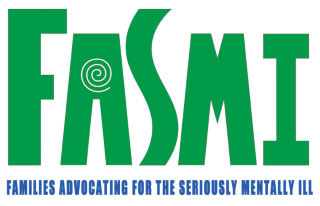BACKGROUND
When California’s LPS Act was passed in 1967, the overarching purpose was to reduce and almost eliminate the institutional system of mental asy-lums where too many people were committed on too little evidence and without much, if any, due process. Nevertheless, the drafters recognized that some persons undergoing severe mental health crises and would need immediate assistance & treatment. The Act laid out three conditions for detaining someone against their will: The individual must be a “danger to self,” a “danger to others” or “gravely disabled.” The primary and most common standard in the US for involuntary commitment is the “dangerousness” standard and the default criterion is most often whether the person is a danger to him/herself or others. That alone is sometimes difficult to determine, but at least there is a certain clarity to it.
On the other hand, the third condition – whether the person is “gravely disabled” – is more vague and has led to widely-varying interpretations throughout California, even from county to county and between individuals authorized to initiate involuntary holds under “Section 5150.” Right now, the terms means that a person is presently unable to provide for their basic needs for food, clothing and shelter because of a mental health disorder or impair-ment by chronic alcoholism. [fn1] This has become serious problem, especially since there is a scarcity of space in acute psychiatric hospitals, which is where individuals would be taken for such a hold. In more and more cases, this has led to a reluctance even to initiate a hold and all too often a person may be determined NOT to be gravely disabled if they manage to get food (even by stealing or scrounging through garbage bins), if they have clothing (even if is not be at all appropriate for the weather, such as thin lingerie in cold weather), and if they shelter under a freeway overpass or cardboard box. [fn2]
SENATE BILL 43
California State Senator Susan Talamantes Eggman (D-Stockton) introduced Senate Bill 43 in March 2023. [fn3] She & her coauthors have targeted their effort on that singular phrase “gravely disabled.” SB 43 preserves the original 1967 definition but ADDS a new set of criteria. The current definition looks specifically at existing circumstances, such as the inability to provide for food, clothing & shelter. Eggman’s bill goes further.
SB 43 would do the following:
+ It expands the definition of “gravely disabled” to also include a condition in which a person, due to a mental health disorder or a substance use disorder, or both, is at substantial risk of serious harm, or is currently experiencing serious
harm to their physical or mental health.
+ It defines “serious harm” for purposes of these provisions to mean significant deterioration, debilitation, or illness due to a person’s failure to meet certain conditions, including, among other things, attend to needed personal or medical care & attend to self-protection or personal safety.
+ It specifies circumstances under which substantial risk of serious harm may be evidenced, as specified.
+ It would make changes relating to conservatorship proceedings, including appointment of a conservator (in certain counties) for a person who is incapable of caring for their own health & well-being due to a serious mental illness & substance
use disorder. It changes evidence rules for testimony by expert witnesses in conservatorship proceedings, where they review medical records; the bill allows the records to include statements of specified health practitioners or a licensed clinical social worker without excluding it as hearsay. It would also authorize the court to grant a reasonable continuance if an expert witness in a proceeding relied on the medical record & the medical record has not been provided to
the parties or their counsel.
+ It allows for state reimbursement to local agencies and districts in certain cases.
STATUS OF THE BILL: The bill has passed through the Assembly Health and Judiciary Committees and is scheduled to be heard by the Appropriations Committee on May 18, 2023. [fn4]
Footnotes:
1. This definition of “gravely disabled” from Welfare and Institutions Code section 5008(h)(1)(A) is the applicable standard in most cases.
2. See e.g., Dr. Tcheng, an emergency room doctor in San Francisco asked a psychiatrist to evaluate whether a particular mentally ill man who had described having eaten a dead raccoon should be treated under an involuntary hold. But, the psychiatrist refused to admit him saying the man wasn’t deemed to fit the requirement of being “gravely disabled” under state law if he could secure his own food. Even if that food was roadkill.” Article “Mentally ill people in S.F. are cycling in and out of emergency rooms. One doctor shares stories about our broken system”, by Heather Knight, March 9, 2022. https://www.sfchronicle.com/sf/bayarea/heatherknight/article/Mentally-ill-people-in-S-F-are-cycling-in-and-16987694.php
3. “California lawmaker wants to reform conservatorships for those with severe mental illness”, by Lindsey Holden, March 2, 2023. https://www.sacbee.com/news/politics-government/capitol-alert/article272630321.html
4. Bill text as amended: https://legiscan.com/CA/text/SB43/id/2721509
Read more at: https://www.sacbee.com/news/politics-government/capitol-alert/article272630321.html
Article: “‘Against their will’: A proposed law would make it easier to detain people with mental illness”, by Thomas Curwen, L.A. Times Staff Writer, 4/9/23, https://www.latimes.com/california/story/2023-04-09/sb-43-gravely-disabled-mental-illness-bill
In Support of SB 43:
– Opinion: Voluntary care is preferable but, in our sickest that we see suffering on our streets every day, that is not happening . Do we, as a society, want to continue to leave very sick, treatable people deteriorating, suffering & dying on our streets & in our jail cells, & ultimately winding up in the morgue? By Linda Mimms, updated May 14, 2023 https://www.mercurynews.com/2023/05/13/opinion-our-failure-to-treat-people-with-psychosis-is-killing-them/ [why everything Disability Rights thinks about our family members is wrong]
– Letters to the Editor: “I Am a Street Doctor Tired of Watching People Die – Expand Involuntary Treatment, by Susan Partovi, M.D., Los Angeles May 5, 2023, etc., https://www.latimes.com/opinion/letters-to-the-editor/story/2023-05-05/street-doctor-tired-of-watching-people-die-involuntary-treatment
In Opposition to SB 43:
